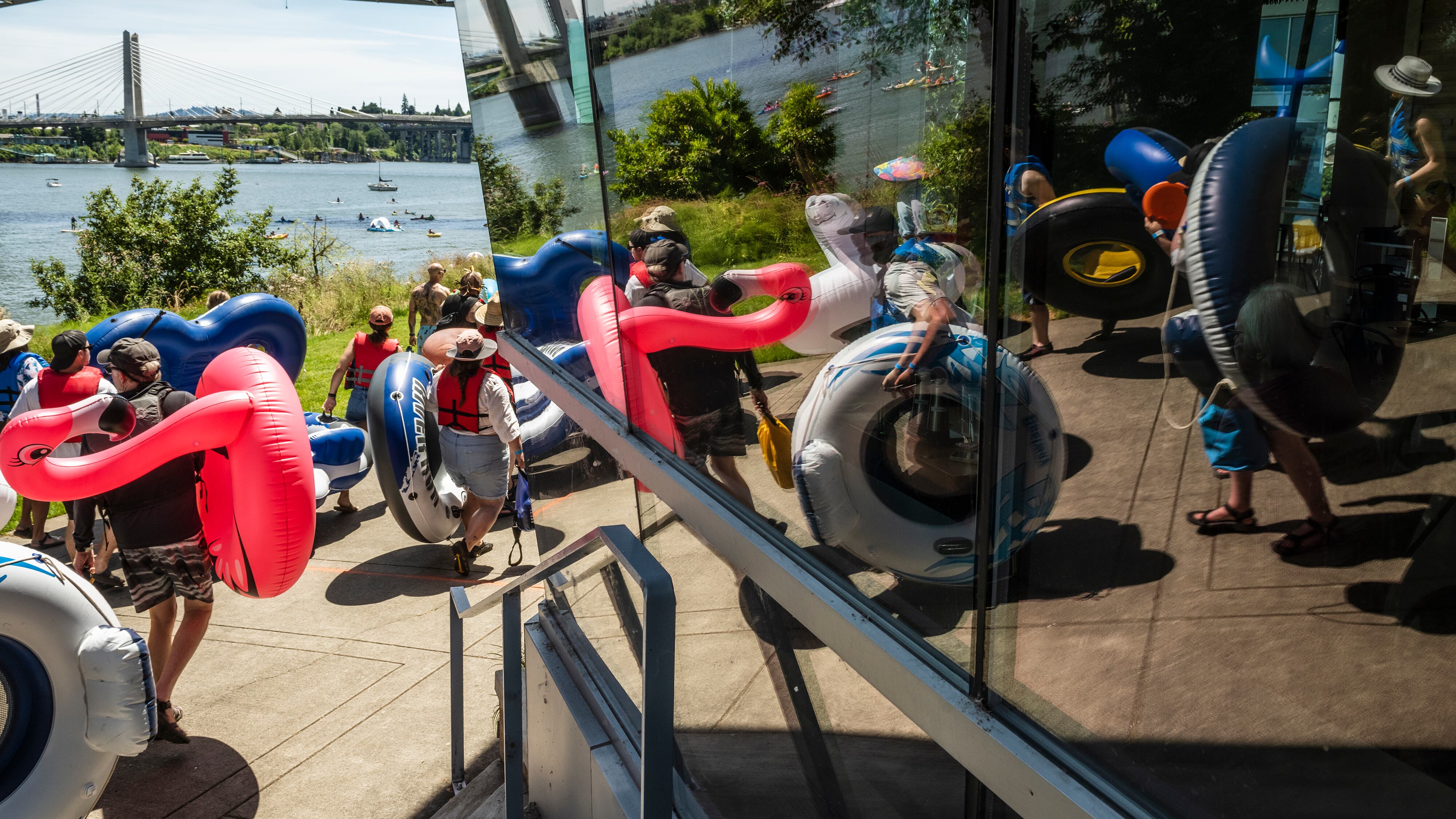Proponents of ranked-choice voting say it’s like booking a plane to Houston: You don’t have to understand how a jet engine works to have a safe flight. Using that analogy, think of last week’s edition of WW as a paper airplane. We test-piloted the proposed new system of voting, a ranked-choice ballot in multimember districts (“Portland’s New Math,” Oct. 5). In our test run, we took beloved fairy-tale characters like Mother Goose and the Big Bad Wolf and gamed out how they’d fare in different scenarios. Here’s what our readers had to say:
TomMcCallsScotchGlass, via wweek.com: “Ranked-choice incentivizes a push to the moderate middle. Trying to capture as many votes even as a second or third pick as possible. For those who have a hard time extrapolating, this means politicians who want to win will need to appeal to a broader and more inclusive base of voters. Without having a parliamentary coalition government with five to seven different parties, ranked-choice will at least move us away from the extremes.”
Scary Shrimp Season, via Twitter: “Thank you for doing this write-up. Anyone who still claims it’s ‘confusing’ should be pointed here.”
Terry Harris, via Twitter: “I tried to explain without a whiteboard over dinner with friends this weekend and mostly failed. It was hard enough to just get past the ‘one ballot-three councilors’ thing. Then, the fractional vote transfers mostly brought big laughs.”
PK, via wweek.com: “‘One person, one vote’ is a bedrock principle of democracy, right? In the Charter Review Commission proposal (multimember districts and RCV), those who vote for the eliminated least-popular candidate essentially vote a second time when the Big Bad Wolf’s votes are redistributed, while everyone else is stuck at one vote. With each elimination round, those who vote for eliminated candidates get to vote again, diluting the value of votes for popular candidates. That is the effect of a single transferable vote in multirepresentative districts.”
Marjorie J. Simpson, via wweek.com: “And why do we have to go through this algebra exercise in order to elect people to City Council? Oh, that’s right, because the proponents of Measure 26-228 think Portlanders are all racist and we need a computer to calculate fractions of votes in order to make us less racist. Except the majority of our current City Council is from minority communities living in East Portland, and the open seat is contested by a Black woman and Hispanic male who both live in East Portland.
“But apparently that’s not representative enough for the handful of nonprofit organizations shoving hundreds of thousands of dollars to convince voters this shiny new voting system is better than what they (and 99.9% of Americans) have been using their whole lives. “
And I wish WW would fact-check their stories. They simulate single transferable vote, but then note that Benton County and Alaska use it, which isn’t true. Those areas use normal ranked-choice voting, not this math Ph.D. dissertation known as single transfer vote.”
Not So Complicated
My God, how much are you fishing (phishing) for a scandal here? I lived in Minneapolis during the first election where that largely functioning city used RCV to vote for city council and mayor. IT WAS NOT THAT DIFFICULT! Seriously. Now, knowing the Oregon and Portland ways of making simple solutions bafflingly complex and prone to fail, the way they structure the ballot will have a big impact on this, but I recall it was as simple as filling in a bubble in the column for first choice and then another bubble for second choice, and so on.
Seriously, WWeek, you seem to be hell-bent on turning this once die-hard supporter of your newspaper into a strong critic and foe, and you’re starting to win. I once thought about contributing to your fund, but with this kind of nonsensical and grossly underinformed “journalism,” the chances of me doing so are about 0.00023%. Did you ever think to pick up the phone and call voters in Minneapolis or other areas that use RCV to see what their experience has been like? Talk about LAZY reporting…
I can also tell you that in four short years, the Minneapolis City Council has seen a significant shift in who has been voted in—out went the older white guys and in came a much more diverse (race, gender, age, etc.) council. Of 12 members, I think only two are still on the council from 2017′s ballot.
You also need a better copy editing team. The number of obvious and embarrassing mistakes that I find in nearly every issue is getting larger and larger. I’d volunteer to help, but you already have preconceived notions about most topics, so I’m sure you don’t think you need help.
Andy Reichert
Outer Southeast Portland (i.e., one of the parts of town forgotten and ignored by WW and Portland government)
LETTERS to the editor must include the author’s street address and phone number for verification. Letters must be 250 or fewer words. Submit to: PO Box 10770, Portland OR, 97296 Email: mzusman@wweek.com

